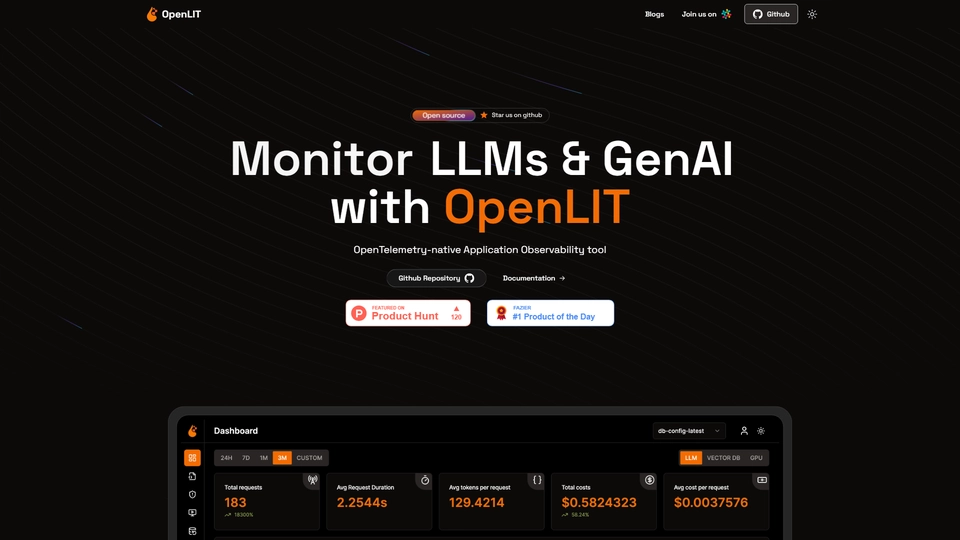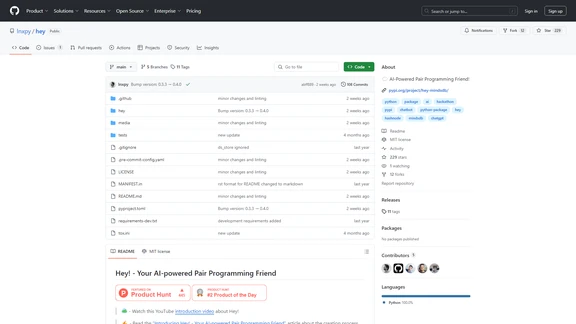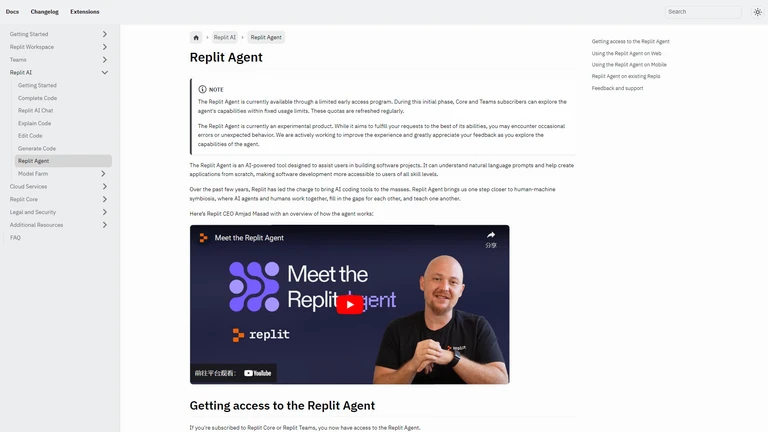What Is Openlit
OpenLIT is a groundbreaking open-source observability tool designed to enhance Large Language Model (LLM) applications by providing comprehensive insights into their performance and behavior. Developed by Aman and his team, OpenLIT is built on the robust framework of OpenTelemetry and offers a seamless way to monitor the entire LLM stack, from high-level applications to the GPU infrastructure, with minimal setup.
The primary purpose of OpenLIT is to address the significant challenges faced by LLM developers. Issues such as inaccurate probabilistic outputs, high inference costs, and latency due to long response times can hinder the development of polished AI products. OpenLIT addresses these challenges by offering features like comprehensive logging, a visual debugging interface, user interaction monitoring, and a prompt playground for testing and optimization.
Aimed at developers working with LLMs and AI-driven applications, OpenLIT provides essential tools for enhancing application performance and understanding nuanced user behaviors. With support for over 20 integrations, including popular platforms like OpenAI and LangChain, OpenLIT fits seamlessly into existing observability setups, making it an attractive solution for various industries. The open-source nature of OpenLIT also ensures flexibility and customization, empowering communities to drive the platform forward.
Openlit Features
OpenLIT is an open-source observability and analytics tool tailored for LLM applications, focusing on comprehensive monitoring from application to GPU layer. Here are some key features and benefits:
Core Functionalities
OpenLIT provides crucial capabilities for monitoring and debugging LLM setups through features like comprehensive logging, tracing, and metrics.
- Comprehensive Logging: Captures full queries, errors, and metrics for each request, helping developers track issues effectively.
- Detailed Traces: Easily debug complex agent interactions with visual UI support.
Integration and Compatibility
Supporting over 20 integrations, OpenLIT seamlessly works with popular tools like OpenAI and LangChain, ensuring flexible data exportation to existing observability systems.
- Seamless Integration: Effortlessly export data and integrate with existing observability stacks.
- Wide Integration Range: Compatible with 20+ AI tools, enhancing versatility and usability.
Performance Metrics and Cost Efficiency
Analyzes token counts, compute costs, and latency, which is pivotal for optimizing performance and managing budgets.
- Cost Efficiency: Automatically calculates costs for custom and fine-tuned models, offering insights into budget allocation.
- Latency Tracking: Visual UI to monitor latency over time, allowing for performance improvements.
User Interaction and Customization
Allows for monitoring user behavior and interactions, with customizable options catering to specific developer needs.
- User Tracking: Gathers user feedback and interaction metrics to improve user experience.
- Customization Options: Open-source and community-driven, allowing for extensive customization.
Benefits to Users
By addressing common challenges faced by LLM engineers, OpenLIT provides valuable insights that enhance application performance without the complexity of setup and management.
- Prompt Playground: Test and optimize different prompts and LLMs for better results.
- Output Evaluations: Ensures high-quality and accurate responses, reducing the impact of probabilistic outputs.
These features focus on providing developers with the tools they need to optimize their LLM applications, ultimately improving performance and cost efficiency.
Openlit FAQs
Openlit Frequently Asked Questions
What is OpenLIT?
OpenLIT is an open-source LLM and GPU observability tool built on OpenTelemetry, designed to monitor the entire LLM stack with tracing, metrics, and a debugging playground.
What are the key features of OpenLIT?
Key features include comprehensive logging, visual debugging, user interaction tracking, a prompt playground, detailed traces, output evaluations, and seamless integration with observability tools.
How does OpenLIT support integration with other tools?
OpenLIT supports over 20 integrations including OpenAI and LangChain, and allows exporting data to existing observability tools.
Is OpenLIT customizable?
Yes, OpenLIT is customizable, open-source, and community-driven, allowing integration with various AI tools.
Does OpenLIT offer cost-efficient solutions?
OpenLIT provides cost efficiency by automatically calculating costs for custom and fine-tuned models.
Discover Alternatives to Openlit
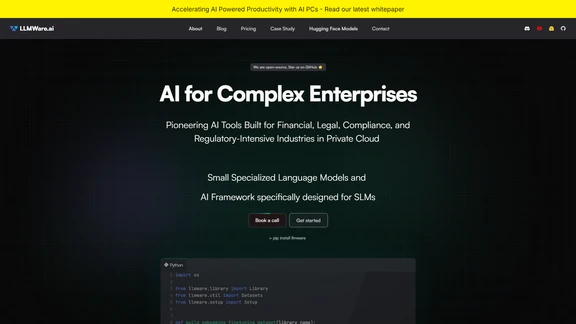
LLM Enhance AI revolutionizes enterprise security by locally deploying small language models for data-sensitive industries.
10/15/2024
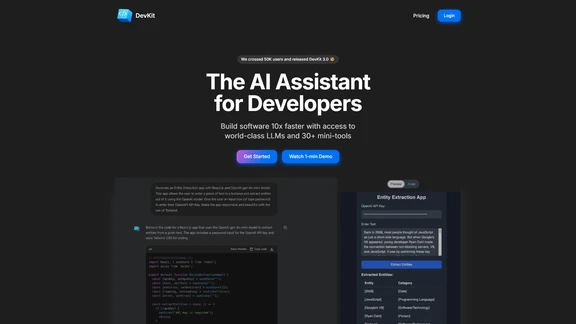
DevKit AI Platform revolutionizes software development with integrated LLMs and productivity-boosting features.
10/15/2024
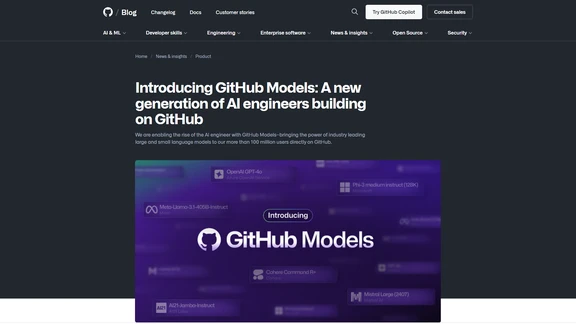
GitHub AI Models transform coding with AI-powered automation, boosting developer productivity and efficiency.
10/11/2024
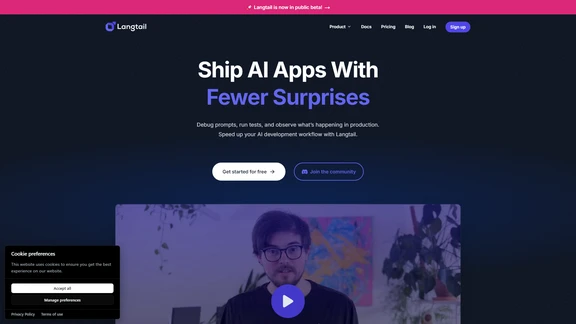
Langtail AI Ops redefines AI app development with enhanced debugging, testing, and deployment efficiency.
10/20/2024
Helicone AI is an open-source observability tool boosting AI application performance effortlessly.
10/9/2024
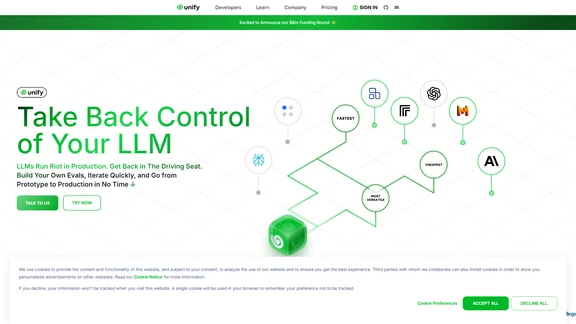
Unify AI Router seamlessly directs prompts to ideal models, optimizing cost, latency, and quality.
10/8/2024
